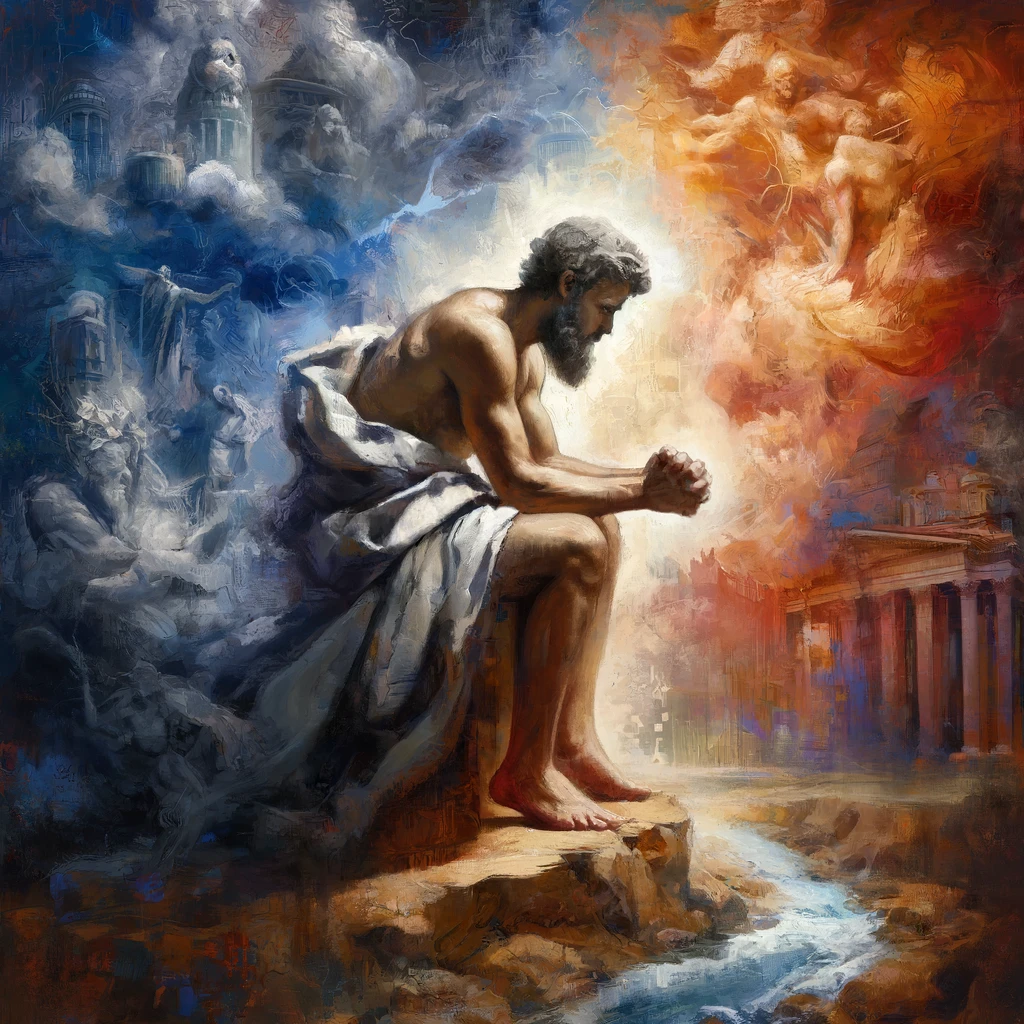
Table of Contents
As mirrored in psalm 50 of the Septuagint
Psalm 50 (51 in the Masoretic Text) is one of the most profound expressions of repentance and contrition in the Bible, traditionally attributed to King David after the prophet Nathan confronted him over his sin with Bathsheba. This Psalm reflects a deep personal remorse, a heartfelt desire for inner cleansing, and a recognition of God’s righteousness and mercy.
The Psalm begins with David pleading for mercy, acknowledging God’s unfailing love and great compassion. He admits his transgressions, recognizing that his sin is always before him and against God alone has he sinned. This acknowledgment is crucial as it shows David’s understanding that sin, while having earthly consequences, is ultimately a violation of God’s law.
David doesn’t just seek forgiveness; he yearns for a transformation that can only come from God. He asks to be cleansed with hyssop, a symbol of purification, and prays for a pure heart and a steadfast spirit. The request for a clean heart signifies a desire not only for pardon but for a fundamental change in his being.
Amid his plea for personal renewal, David also promises to teach transgressors God’s ways, turning his own experience of grace into a ministry of reconciliation. This shows an understanding that true repentance involves a change in lifestyle and actions, not just feelings of remorse.
Furthermore, David recognizes that God’s desire is not in sacrifice, but in a broken spirit; a broken and contrite heart God will not despise. This highlights the inner nature of true worship and repentance, contrasting ritual actions with the sincerity of the heart.
The Psalm ends with prayers for Zion and Jerusalem, widening the scope from personal forgiveness to the restoration and prosperity of the entire community. This reflects an understanding that individual sin and repentance have communal implications and that God’s redemption can lead to the renewal of the whole society.
Psalm 50 (Septuagint) / Psalm 51 (Masoretic Text) is a powerful reflection on sin, repentance, and the mercy of God. It teaches that repentance is more than feeling sorry; it’s a transformational process that begins with honest acknowledgment of one’s sins, leads to a sincere desire for purification and change, and results in a commitment to live according to God’s ways.

The image combines classical and modern art styles to express the theme of repentance and renewal, inspired by Psalm 50 (51) of the Septuagint. They depict King David in a moment of profound contrition, surrounded by symbols of his kingship yet visibly humbled, merging ancient symbols with abstract expressions to illustrate the journey from guilt to forgiveness
Shop Tips
Let us repent, the Kingdom is at hand!
Take time to learn
Invest in your future
Embark on a journey into the realm of affiliate marketing and craft your own website within a vibrant, supportive community. Join me in this adventure, where you can begin as a free starter and stay as long as you desire. Enjoy complimentary hosting and foundational teachings to set you on your path. For those with advanced skills, opportunities to elevate your expertise await. Take a moment to explore and witness the magic for yourself!




